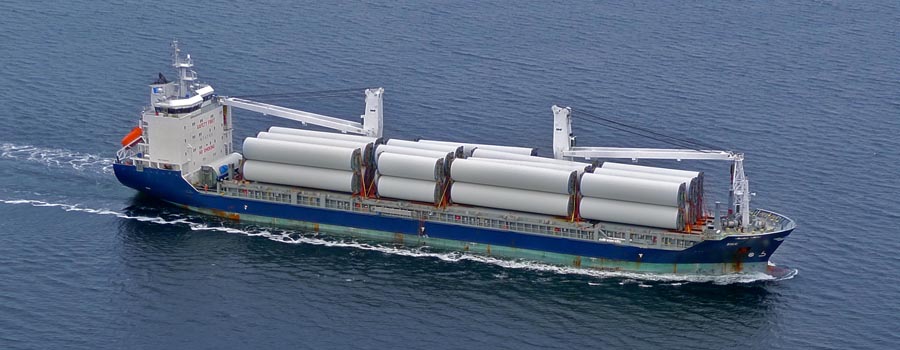Are you familiar with the challenges associated with breakbulk cargos?

Accredited Certification
Earn professional certificates approved by the American Bureau of Shipping (ABS) and/or Nippon Kaiji Kyokai (ClassNK). Most countries accept Class-approved training certificate as equivalent for local endorsements. Check with your flag state for endorsement requirements.
This is an ABS-approved course. Candidates will earn an ABS-approved course completion certificate upon successful completion of this course.
Breakbulk cargo is defined as general cargo or goods that do not fit in or utilize standard shipping containers or cargo bins. Instead, breakbulk cargo is transported individually, often times on a skid or pallet or in a crate. Examples of breakbulk cargo include construction equipment, manufacturing materials, oversized vehicles, boats, cranes, turbine blades, ship propellers, generators, large engines and more.
Transportation of heavy lift, project cargo and non-containerized cargo is a sector of shipping that requires specialized knowledge. As a rapidly growing, important area of maritime business, Breakbulk Shipping calls for new entrants with the appropriate skills and existing professionals who can achieve a global benchmark of industry knowledge.
Breakbulk Transportation Process:
World Trade Patterns, Transportation Modes
Breakbulk Cargo:
Breakbulk Cargo Handling, Cargo Operations, Safe Carriage, Cargo Monitoring, Cargo Control, Cargo Care
Breakbulk Chartering:
Vessel Operations, Chartering Process, Stakeholders, Customer Interaction, Documentation
Upon registration, students participate at their own pace and on their own schedule, within a 90-day program completion time frame (3 courses). Courses may be taken simultaneously.